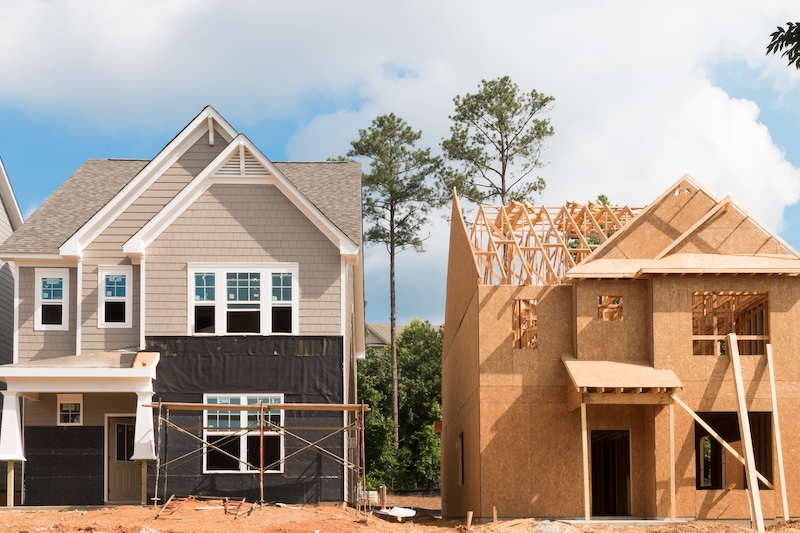For families in the military, buying a home is often shaped by unique needs and constraints. Whether you’re moving due to a Permanent Change of Station (PCS) or seeking stability for your loved ones, deciding between a brand-new home and one with history can be a significant choice. Both options come with distinct advantages and potential challenges, making it essential to weigh what’s most important for your family’s lifestyle and circumstances.
Benefits of New Construction Homes for Military Families
- Customizable and Move-In Ready
One of the biggest advantages of new construction is the ability to customize the home. From layout and finishes to energy-efficient features, you can create a space that perfectly suits your family’s needs. Many builders also offer turnkey solutions, meaning your home is move-in ready when you are—a critical factor if your Permanent Change of Station (PCS) orders give you limited time to settle in. - Lower Maintenance Costs
New homes come with brand-new systems and appliances under warranty, reducing the likelihood of unexpected repair expenses. This can ease the financial burden for families on a budget, especially during the transition to a new duty station. - Modern Features
Energy-efficient designs, smart home technology, and open-concept floor plans are common in new builds. These features can provide long-term savings on utility bills and adapt well to the dynamic needs of a military family. - Predictable Closing Timelines
Builders often adhere to a clear timeline for construction, which can help align with your PCS schedule. However, delays can still occur, so it’s essential to have a contingency plan if construction runs late.
Challenges of New Construction Homes
- Higher Costs
New construction often comes at a premium. While the upfront cost may be higher, the reduced maintenance expenses can offset this over time. It’s worth exploring VA loans to help with affordability. - Limited Location Options
New developments may be farther from established military bases or schools, requiring longer commutes. If being close to your duty station is a priority, this might not be the best fit.
Benefits of Existing Homes for Military Families
- More Affordable and Negotiable Pricing
Existing homes often come with a lower price tag than new construction. Additionally, military families may have room to negotiate price or closing costs, especially in markets with motivated sellers. - Established Neighborhoods
Many existing homes are located in well-established neighborhoods with mature trees, community amenities, and proximity to schools, shopping, and military installations. These conveniences can make settling into a new area much easier. - Faster Closing Process
When time is tight, an existing home may be the faster option. Closing on an existing property can often be completed within 30 to 60 days, which aligns well with the needs of families on a PCS timeline. - Unique Character
Older homes often feature unique designs and larger lots, giving you more space and charm compared to the cookie-cutter feel of some new builds.
Challenges of Existing Homes
- Potential Maintenance Issues
Older homes may require repairs or updates, such as replacing an aging HVAC system or addressing outdated wiring. For military families with limited time or funds, this could add stress to the home-buying process. - Limited Customization
Unless you’re planning a renovation, you’ll likely need to compromise on certain features. However, minor upgrades like painting or new flooring can help make the home feel more personalized.
Which Option Is Right for Your Family?
Deciding between new construction and an existing home depends on your family’s priorities. If you value modern amenities, low maintenance, and customization, new construction could be the better choice. On the other hand, if affordability, location, and character matter more, an existing home may be the way to go.
Both options have pros and cons, but understanding what works best for your family’s needs and lifestyle can make the decision easier. Take advantage of resources like VA loans and work with a real estate agent experienced in helping military families. A little planning ensures your new house feels like home—no matter how long you’ll be staying.



